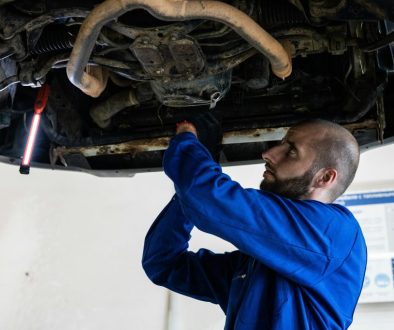How Assessor Qualifications Have Changed
Assessor qualifications have changed an awful lot over the years. It can be quite hard to keep up with the new courses and regulations. That is why here at Brooks and Kirk we regularly create content around the latest industry updates and trends; helping to save you precious time. Back in the day (ok so only around 10 years ago) if you were looking to become an Assessor, things were much simpler. The only qualification that was around was the A1, so once this was completed, you were a qualified Assessor.
Nowadays, when you search for Assessor qualifications online, you will be greeted with hundreds of pages and lots of different options to choose from. Many of these are completely outdated and don’t even exist anymore, so we thought it would be a good idea to set things straight once and for all!
What Is The Role Of An Assessor?
There are lots of different responsibilities that come under the umbrella of being an Assessor. This can include delivering and assessing NVQs, marking distance learning qualifications (which don’t necessarily have to be NVQs) and more. When most people think of Assessors they think of someone who puts together a portfolio of evidence to show competence in a subject being studied.
We have already touched on the subject of how there is a skills shortage in the UK at the moment. Therefore, apprenticeships are an increasingly popular choice for students. This means that the demand for Assessors has also increased as a result; making it a very attractive job at the moment. That, combined with the flexibility of managing your own diary, and having a rewarding job are just a handful of the reasons why people choose to become an Assessor.
Qualifications
One thing that hasn’t changed is the occupational competence you need in order to become an Assessor. Not only should you have an Assessor qualification, but you also need to have experience within the field that you are assessing. At Brooks and Kirk, we always recommend a minimum of 2-3 years of work experience in that area. Ideally, you should hold a qualification at one level higher than the one you want to assess.
If you are looking into assessing, one thing that may have popped up in your research is TAQA. Now this is where it can sometimes get a bit confusing. TAQA isn’t a qualification in its own right and stands for Training Assessment & Quality Assurance. This, therefore, is an umbrella term for the suite of qualifications that relate to education and training. Here are the core qualifications you can take:
- Training – Level 3 Award in Education & Training (AET)
- Assessment – Level 3 Certificate in Assessing Vocational Achievement (CAVA)
- Quality Assurance – Level 4 Certificate in Leading the Internal Quality Assurance of Assessment Processes & Practices (Lead IQA)
It is worth mentioning that you don’t have to complete all of these qualifications in order to be an Assessor. If you are applying for a job that is asking for TAQA specifically and you only hold two of the qualifications you could still be in with a chance.
CAVA
If you are serious about wanting to become an Assessor, then the Level 3 Certificate in Assessing Vocational Achievement is the qualification that you need. It is a mixture of competency and knowledge, and you will be required to assess learners as part of the course. Don’t worry if you don’t have your own learners though, because if you choose to study with Brooks and Kirk we can provide these for you.
We do recommend completing AET alongside CAVA if you want to assess adult learners. This is because AET will give you an introduction to teaching and information on how to deliver teaching sessions. Then CAVA allows you to assess learners in both their place of work and their learning environment.
If you would like more information on becoming an Assessor, or setting up your own training centre please give us a call on 01205 805155 and we will be happy to help.
Steve is a Chartered Manager and a Fellow of the Chartered Management Institute.
He provides Educational Consultancy to the 19+ sector as well as being an Assessor, IQA, EPA and Digital Marketing Professional. When not doing any of these he finds time, every now and then, to write blogs and articles.



